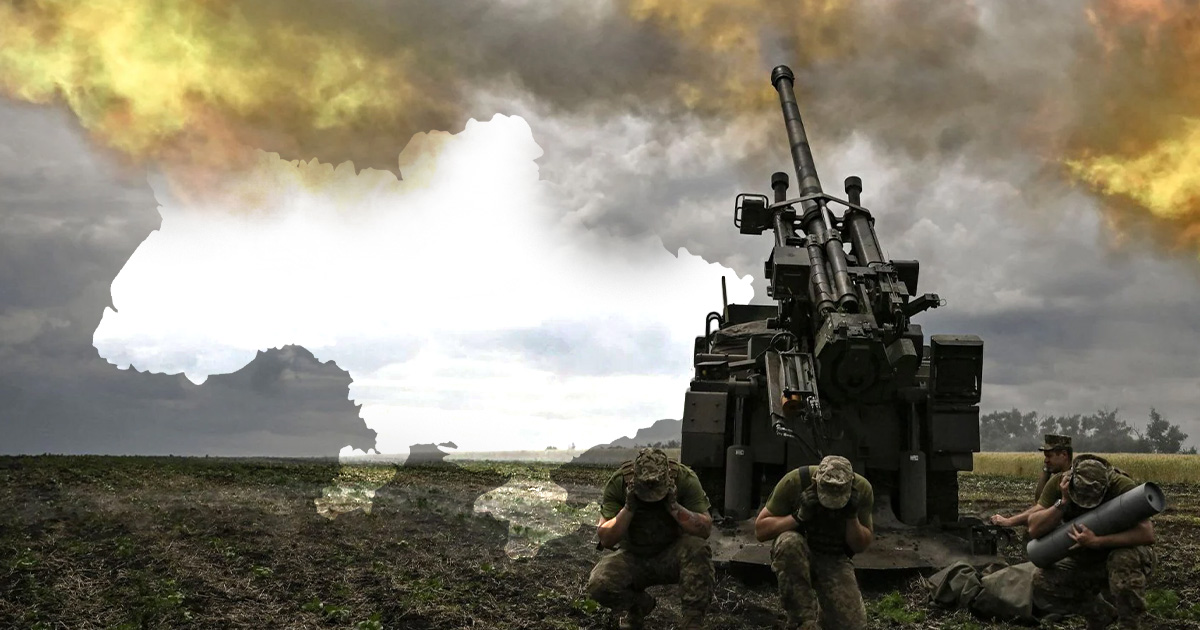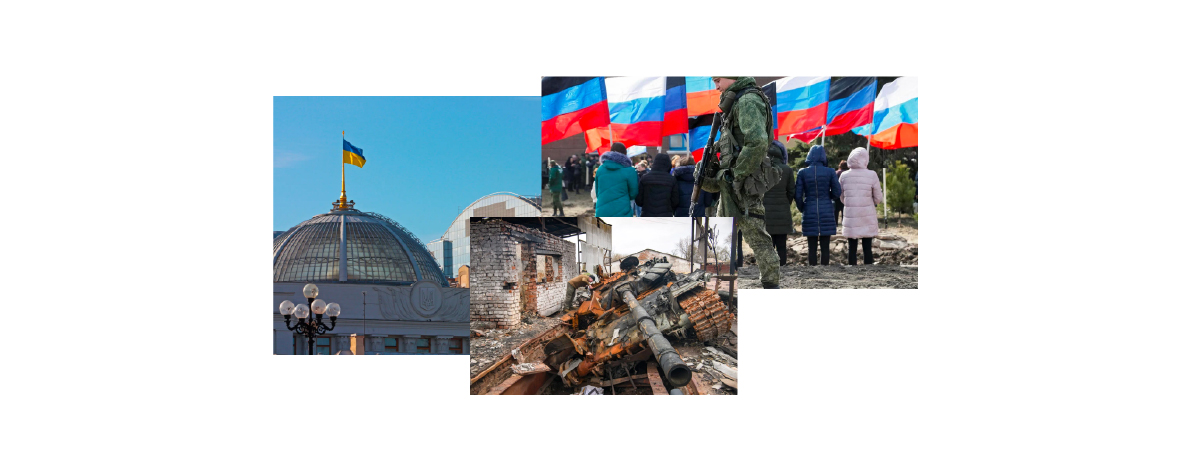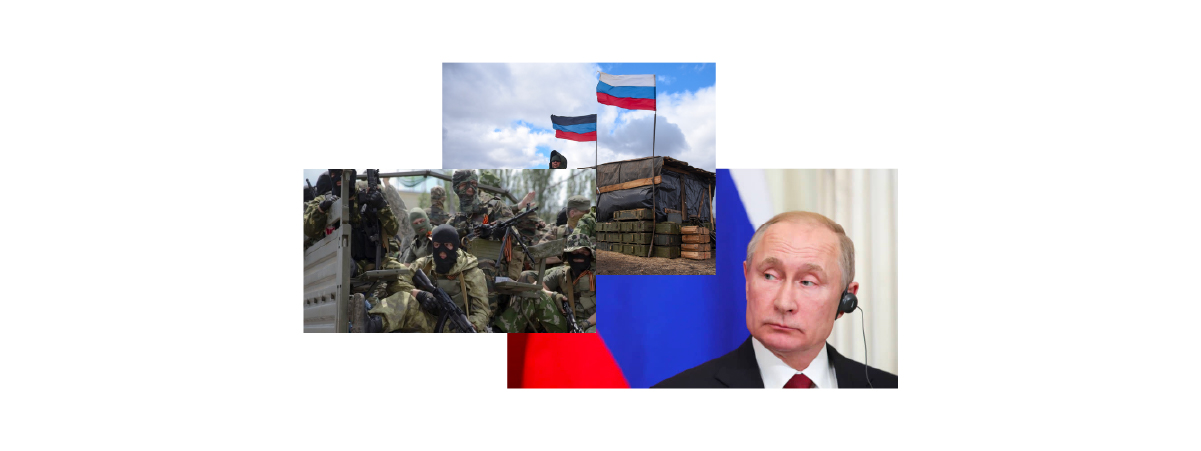What is the difference: the war in Ukraine vs wars of the 21st century

The war in Ukraine has been going on for the ninth year. So foreigners are getting tired, showing more interest in national issues. Meanwhile, Ukrainians struggle to prevent the war from falling into oblivion. As a result, a conflict arises, leading to hate speech. A flashmob, "They don't care about us", is spreading on TikTok, presenting Ukraine as an anti-hero that allegedly unfairly draws attention to itself among other wars.
How is the Russian-Ukrainian war different from other wars, and why has Ukraine received much worldwide attention?
The illusion of similarity
Despite the war unleashed by Russia against Ukraine in 2014, foreigners believe that the fight continues against the residents of Donetsk and Luhansk regions who disagree with Kyiv's policy. Ukraine has evidence that Russia supports illegal armed groups in the temporarily occupied Donetsk and Luhansk regions, and its soldiers have been fighting against Ukraine since 2014. In addition, the leaders of the so-called "Luhansk/Donetsk People's Republics" illegal armed groups have never recognised the change of power as their goal. Instead, the intelligence reports about a pseudo-referendum held in the temporarily occupied territories to annex them to the Russian Federation.
Russian propaganda forces to compare the Russian-Ukrainian war with Afghanistan. After the transition of Afghanistan from the status of a British colony to an independent country, it remained unstable. Afghanistan was divided into supporters of the United States, Pashtuns (ethnic people of the country with pre-Islamic values), supporters of the Soviet Union, and later the Taliban. In addition, ethnically, the state is populated by about 40% of Afghans, up to 30% of Tajiks and almost 20% of Hazara and Uzbeks. Therefore, from 1926 to 1992, there were five civil wars in the country. The monarchy changed to dictatorship and the policy from pro-Western to communist.
Subsequently, Islamist conservatives came to power. By abolishing reforms that contradicted Islam, they developed the feudal fragmentation of the state. Moreover, it led to the emergence and further growth of the influence of the Taliban movement, which in 1996 proclaimed the Islamic Emirate of Afghanistan.
In 2001, in response to the September 11 terrorist attack, the United States and its allies began an intervention to liberalise the country. In the same year, the Taliban regime was overthrown. However, in 2021, US troops left Afghanistan, hoping to reconcile the Taliban with the Afghan government. Instead, in August, the Islamic Emirate of Afghanistan was proclaimed again.

Iraq vs Ukraine
Since the beginning of the full-scale invasion of Ukraine, Russian officials and media have been making statements about the alleged similarity and sometimes even identity of the wars in Iraq and Ukraine. Such talk spread after George W. Bush's speech when the former US President made a mistake and condemned Russia's invasion of Iraq, not Ukraine.
There are similarities in the wars, including the intervention of nuclear power, an unjustified pretext for war, massive air strikes on civilian infrastructure and the international community's reaction. However, there are also significant differences: the governments and their policies.
Contrary to the relatively democratic Ukraine, Iraq, at the beginning of the war, had a long-term dictatorship headed by Saddam Hussein. There was total censorship and repression in the country and expansion into neighbouring countries. Thus, in 1990, Saddam Hussein started the Gulf War to annex the lands of Kuwait.
In addition, during the Iran-Iraq war in 1988, the Iraqi government used chemical weapons against the civilian population of Halabja. As a result of the gas attack, about five thousand civilians were killed, and ten thousand more were injured. In 2010, the Iraqi Supreme Court officially recognised the event as genocide against the Kurds.
The Russian President argued the attack on Ukraine by the right to self-defence, namely, as assistance to "friendly Donetsk and Luhansk People’s Republics". Also, the Russian government, among the reasons, called that Ukraine was allegedly preparing to attack the temporarily occupied territories of the Donetsk and Luhansk regions. However, Russia has not provided any evidence.
Information warfare
Russia's full-scale invasion of Ukraine has attracted public attention in the West. In particular, Hollywood stars like Sean Penn, Benedict Cumberbatch and Mila Kunis covered the war. Angelina Jolie and Jessica Chastain visited the country. Italian rock band Måneskin and singer Ed Sheeran wrote songs supporting Ukraine. Actor Liev Schreiber cooked meals for Ukrainian refugees on the Ukrainian-Polish border, and Ryan Reynolds and the Beckham family sent money totalling $2 million. At the same time, other wars in Yemen and Ethiopia have not attracted public attention, as the media hardly talk about them.
There are several reasons for Ukraine's success in the information space. First, at the beginning of the full-scale war, the potential global threat that could lead to nuclear escalation played the most significant role. In addition, the public has always been more interested in what concerned them. The Russian-Ukrainian war affects Europe with economic and sometimes security issues.
Besides, Ukrainians are doing everything to keep the topic of the war alive. Zelenskyy has become the personification of a hero and a true leader. People began to create and spread memes about the war and invented symbols that could reach a foreign audience. They are trying to bring each shelling to the top of the queries so that more people know what is happening. Moreover, the Ukrainians have proved they can support the army for a long time: in June, the fourth month of the full-scale war, they raised enough money to purchase four Bairaktar TB2 drones.



